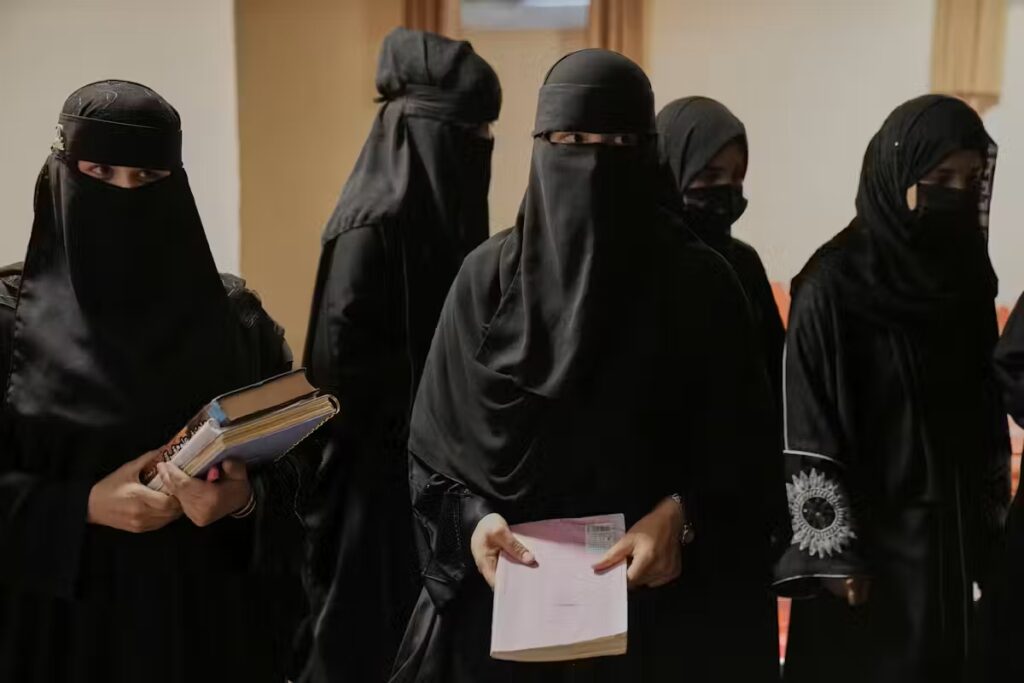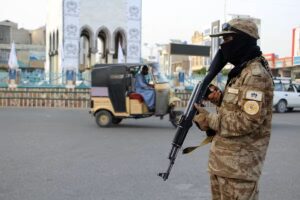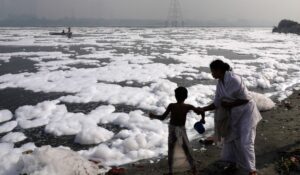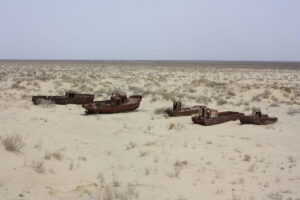After 4 Yrs Of Repressive Taliban Rule, Afghans Are Suffering In Silence

Afghan girls attending a religious education centre in Kabul (Ebrahim Noroozi/AP)
On August 15, 2021, Afghanistan’s democratic republic collapsed.
As the last US and NATO troops departed the country, the Taliban swept back into power and the Afghan people braced for an uncertain future.
Despite promises of moderation and inclusion, four years later, the Taliban has established a repressive, exclusionary regime – one that has dismantled institutions of law, justice and civil rights with ruthless efficiency.
As the Taliban regime has tightened its grip, international attention has waned. Crises in Ukraine, Gaza and elsewhere have dominated the global agenda, pushing Afghanistan out of the spotlight.
With the Taliban seeking to end its isolation and gain legitimacy, can the international community find the will now to exert real pressure?
The Taliban’s emirate of repression
After coming back into power, the Taliban discarded the country’s 2004 constitution, allowing the regime to operate without a transparent rule of law. Instead, Mullah Hibatullah Akhundzada, the reclusive Taliban leader, rules by decree from his base in Kandahar.

The Taliban’s repression of women and girls has been so severe, human rights groups now call it “gender apartheid” and argue it should be a new international crime.
Edicts have erased women from public life, banning them from education beyond primary school (with the exception of religious education), employment and public spaces. Women also cannot move freely in public without a mahram, or male guardian.
The Taliban also dismantled the Ministry of Women’s Affairs, replacing it with the Ministry for the Propagation of Virtue and Prevention of Vice. As a central instrument of repression, the ministry reinforces institutionalised gender discrimination through regular raids and arrests, surveillance and monitoring of public spaces.
Taliban rule has also led to the exclusion and persecution of minority ethnic and religious groups such as Hazaras, Shias, Sikhs and Christians.
In the province of Panjshir, the focal point of resistance to the Taliban, human rights groups have documented the Taliban’s severe crackdowns on the local population, including mass arrests and detentions, torture and extrajudicial killings.
More broadly, the Taliban has decimated the civic space in the country. Journalists and activists have been silenced through fear, violence and arbitrary arrests. This has led to widespread self-censorship and an information blackout that allows abuses to continue with impunity.
Despite the immense risks, activists, journalists and ordinary citizens continue to resist the Taliban. Women have staged peaceful protests in the face of harsh crackdowns, while others run secret schools for girls and document abuses in the hope of future accountability.
Humanitarian aid dwindling
Although most countries do not recognise the Taliban as the formal and legitimate government of the country, some regional states have called for an easing of its international isolation.
Last month, Russia became the first country to recognise the Taliban. China is also deepening its economic and diplomatic ties with the group. India’s foreign minister recently met with his Taliban counterpart, after which the Taliban called New Delhi a “significant regional partner”.
International aid continues to flow into Afghanistan, but a report from a US watchdog this week documented how the Taliban uses force and other means to divert it.
The United States had still accounted for more than 40% of all humanitarian support to Afghanistan after the Taliban’s return. But US President Donald Trump’s decision to decimate the US Agency for International Development means this funding has all but disappeared.
This has crippled essential services and threatens to plunge the country into one of the world’s worst humanitarian crises. Health facilities have closed and malnutrition is rising. The mass deportation of hundreds of thousands of Afghans from Iran and Pakistan has only further added to the humanitarian catastrophe.
For years, the United Nations has tried to facilitate talks between the Taliban and international community in Qatar with the aim of improving conditions in the country. However, it has faced repeated setbacks.
The Taliban only decided to attend the talks in mid-2024 after the UN conceded to excluding women and civil society groups and restricting the agenda. The meeting resulted in no breakthroughs or concessions.
Another round of talks is anticipated, but the central dilemma remains: how to engage the Taliban without legitimising its repressive rule.
Courts making some progress
The Taliban’s systematic human rights abuses have global repercussions. Experts warn of a rising trend of similarly styled repression, dubbed “Talibanisation”, taking root in other countries.
In Yemen, for example, Houthi leaders have imposed restrictions eerily similar to Taliban edicts, banning women from walking in public without a male guardian and restricting their work.
While individual states have failed to agree on a coordinated response to the Taliban, international institutions have taken steps in the right direction.
In July, the International Criminal Court issued arrest warrants for Akhundzada and the Taliban chief justice, accusing them of crimes against humanity for gender-based persecution.
Separately, four countries – Australia, Germany, the Netherlands and Canada – have begun the process of bringing a case against the Taliban to the International Court of Justice for gender discrimination. This would be a first for the court.
To complement these efforts, the UN member states must establish an independent international investigative mechanism to systematically document and investigate crimes committed by the Taliban. Such a mechanism would help preserve evidence and lay the groundwork for future prosecutions.
Without concerted international pressure, the suffering of the Afghan people will only worsen and the Taliban’s brand of repression will continue to impact women’s rights far beyond Afghanistan’s borders.





